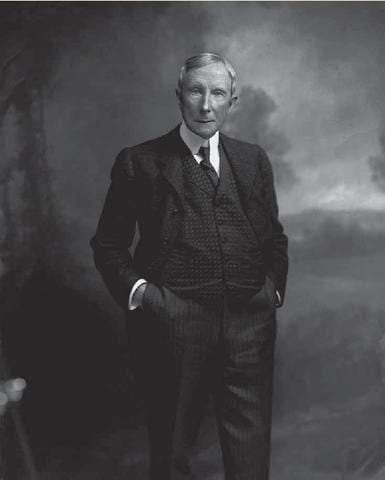John D. Rockefeller’s oil empire came under intense scrutiny as the American public questioned the social benefit of trusts. Critics claimed that industrial combinations consolidated wealth and power in the hands of corporate tycoons. Corporations like Rockefeller’s Standard Oil, they argued, eliminated competition and left consumers vulnerable to corporate speculation and abuse.
In this written response to a Congressionally-authorised Industrial Commission investigating trusts and combinations, Rockefeller articulated the business rationale for industrial combinations. Rockefeller argued that corporate combinations had become a necessity in order to operate in an increasingly complex, international economy, and that Congress should seek to regulate and control industrial combinations rather than eliminate them.
What does Rockefeller say are the rationale and public benefits of trusts? How does Rockefeller describe the relationship between the domestic and foreign markets, and the implications for corporate structure?
How does Rockefeller characterize the potential problems with trusts and the effectiveness of legislative responses?
Citation:
Preliminary Report on Trusts and Industrial Combinations, Together with Testimony, Review of Evidence, Charts Showing Effects on Prices, and Topical Digest, Part 1, Before the Industrial Commission, 56th Cong., 1st sess. 796–97 (1899) (Statement by John D. Rockefeller, President of the Standard Oil Company).
Library Item date:
1899
